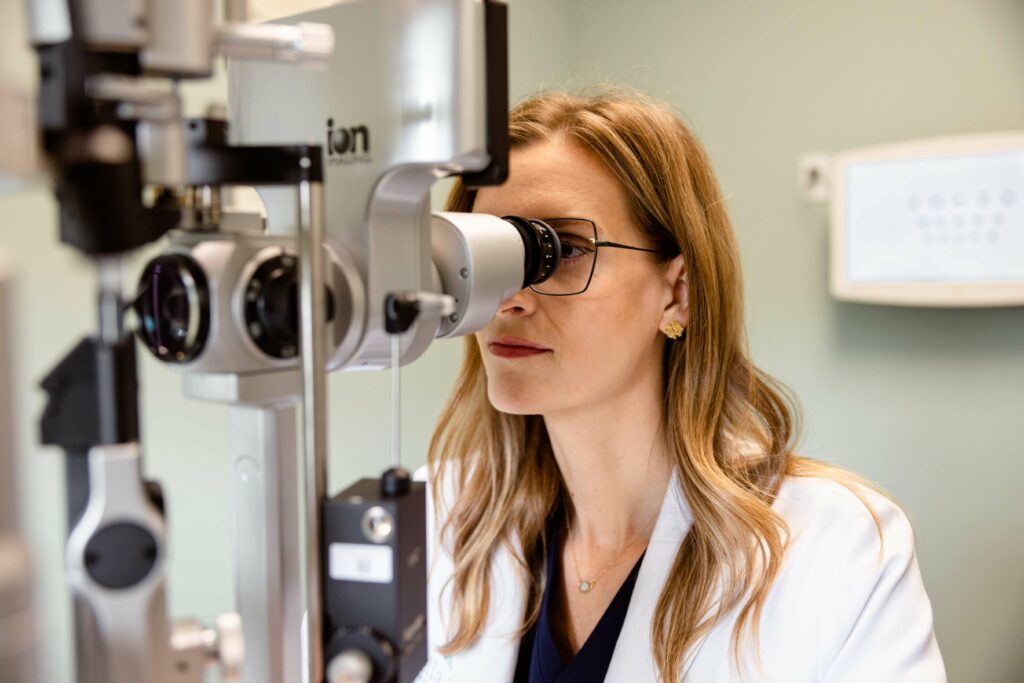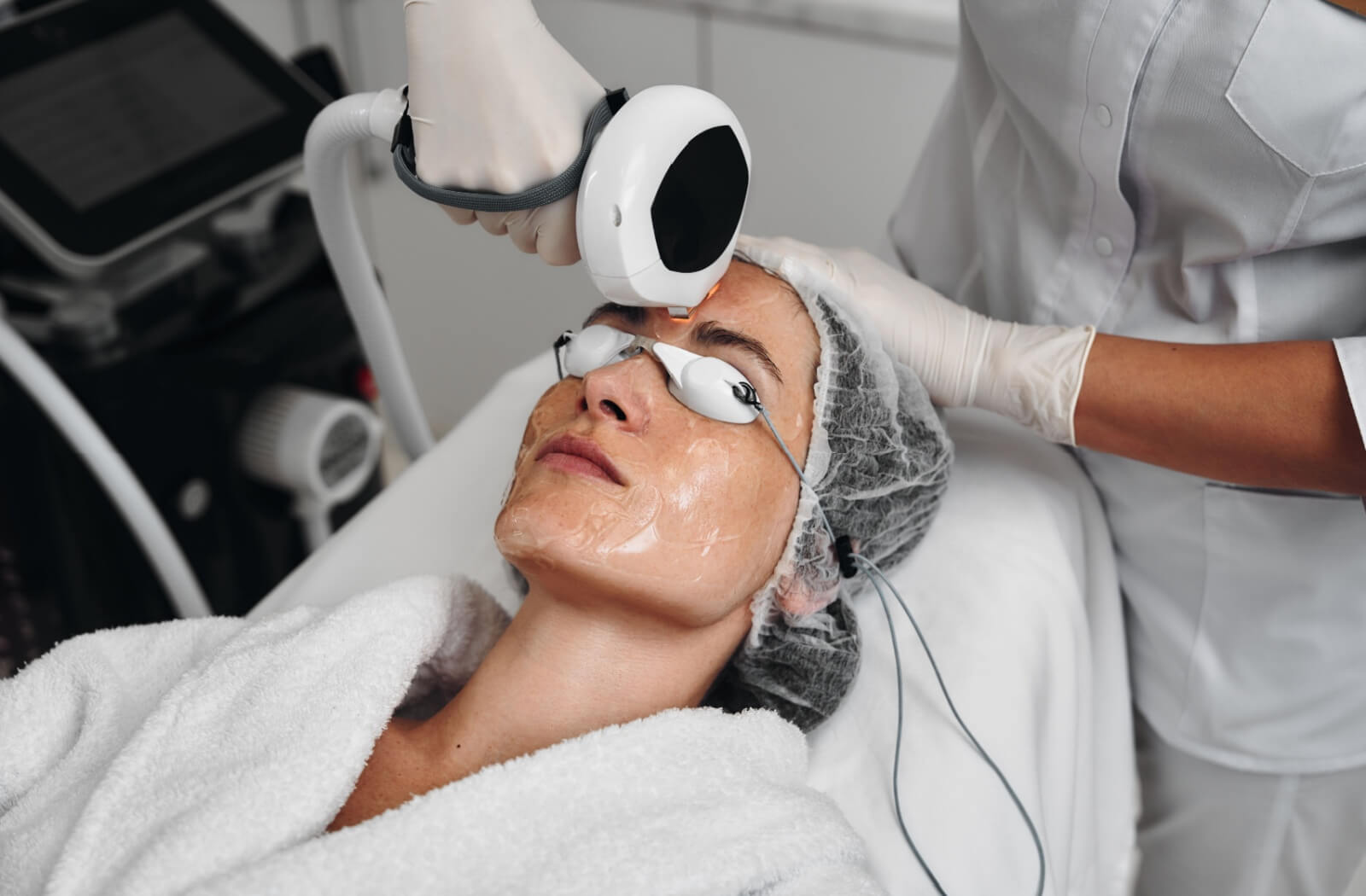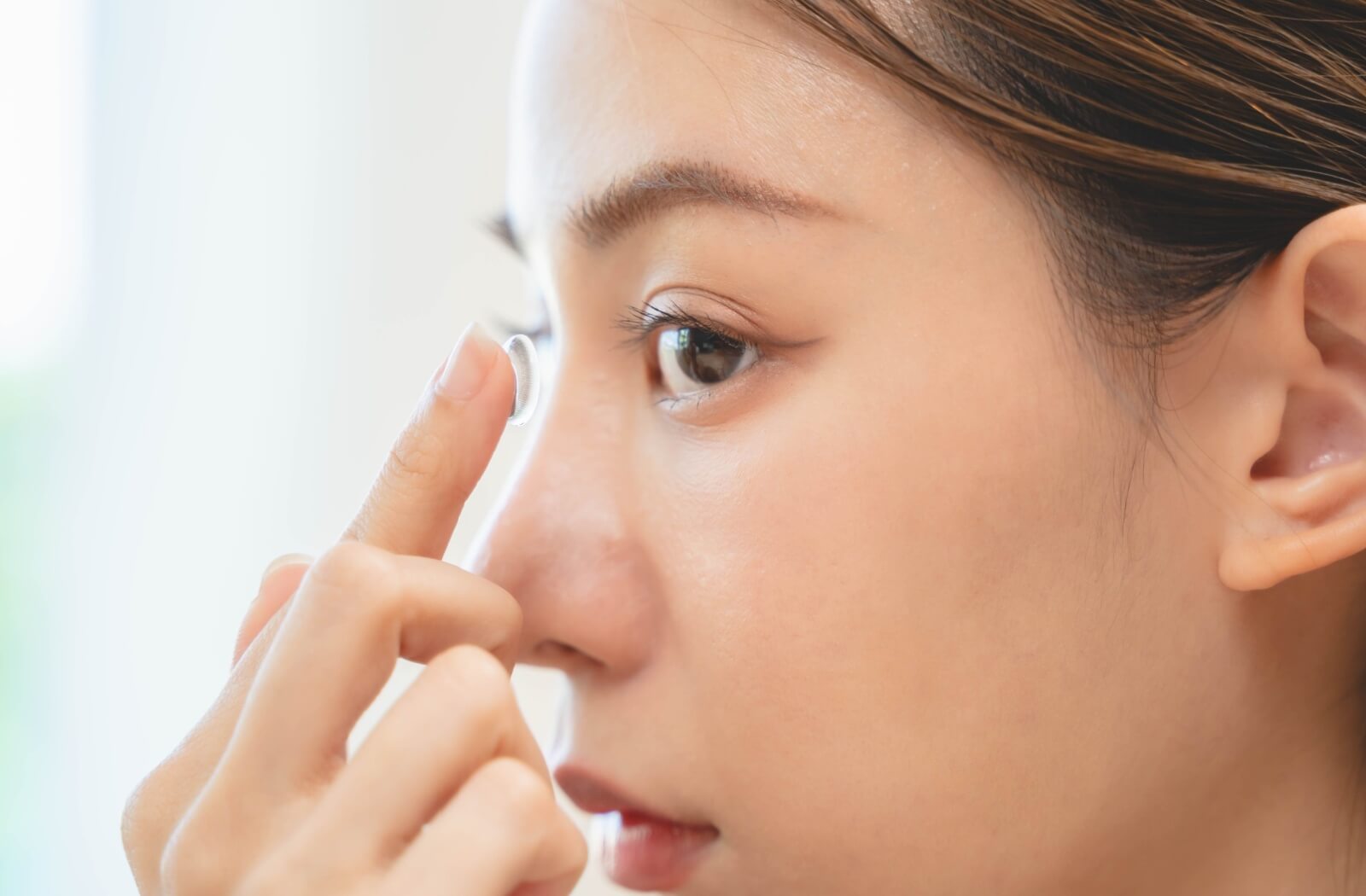Bella Vision’s lead vision therapist shared her path back from a traumatic brain injury, and how vision therapy, her teammates, and her patients helped her along the way.

The month of March is Brain Injury Awareness Month, bringing awareness about traumatic brain injury (TBI), prevention, and the quality of life for people living with a TBI. People just like Bella Vision’s lead vision therapist, Kristen, who recently found out what it’s like to be on the patient side of the vision therapy program, traveling the same path she’s walked with her own patients time and time again.
Rewind back to a day in late February of 2023. Despite feeling a little tired, Kristen saw her regularly scheduled morning patients. She felt a headache coming on and decided to go to a nearby store during her break to pick up some Tylenol and eat lunch.
“I remember walking into the store and picking up a shopping basket like I normally do,” Kristen recalled. “I was talking on the phone and shopping, and the next thing I remember is waking up in an ambulance.”
In between the shopping basket and the ambulance ride had been a loss of consciousness, a fall, a hit to the head on the floor and a subsequent seizure.
“I woke up in the ambulance, very confused,” she said. “Apparently, I kept telling them they had the wrong person and they needed to go inside and get the right person who was hurt and waiting on them.”
“Even though I was confused, I was anxious to get back to see my afternoon patients. When I turned my head to look at the EMT to tell him that, I immediately became nauseous and knew something was wrong.”
The EMT asked a few questions and Kristen struggled with the answers:
Q: What year is it?
A: 2012
Q: Who is the President of the United States?
A: Ronald Reagan
Q: When is your birthday?
A: I can’t remember
A blurry ride to the hospital, several hours of waiting, a battery of tests (all negative), an increase in pain, and a general “fogginess” followed.
“I felt like I was in someone else’s body. I had to pause a lot when talking because I couldn’t recall the exact words I wanted to say.”
Kristen was discharged from the hospital and was immediately overwhelmed with dizziness, struggling to walk and needing assistance with the most basic tasks. She was not allowed to be at home by herself for the first few days and spent the next several days at home resting. She returned to work the following week.
“It was different for me to return to work because I returned to work on the other side of what I do every day (helping patients with a TBI). So coming back to work helped me a lot more than most, because we help people here every day with brain injury.”
Under the care of Dr. Wilson, we immediately implemented syntonics, made an adjustment to her glasses, dimmed the lights in our vision rehabilitation clinic, and adjusted the brightness on her computer monitor and iPads.
Stephanie is using a synotics pen light to help Kristen work through basic eye movements.
“I was being watched like a hawk by my teammates,” Kristen joked. “Everyone was very concerned and watching out for me at work – even my patients! I really appreciated their concern. They would ask me if I needed to take a break during a session, and they allowed me to pause more often to let my words come to me. It meant so much to me.”
However, there was one person Kristen singled out the most. “I would be completely lost without our vision therapist Stephanie.”
In Kristen’s first days back, Stephanie took on as many of her patients as she could. If Stephanie had an open appointment slot, you would find her joining Kristen’s sessions to assist. Whether charting, assisting with activities, or just providing opportunities for Kristen to take small breaks, Stephanie was there to support.
“Kristen was actually my first brain injury patient to lead through a vision therapy program,” Stephanie said. “Prior to that, all of my patient cases were more fast-paced and I was able to move more quickly. It was a major challenge for me as I learned firsthand how much more time and patience is involved when helping a patient with a TBI.”
“I know I am probably the worst patient,” Kristen said. “I’m naturally a therapist first and a patient second and have had a hard time trying to reverse those. I have made it one of my personal goals to be a better patient and focus on my progress.”
Kristen is wearing prism goggles to help correct her midline shift with the goal of improving her balance.
Fast forward twelve months from Kristen’s initial TBI. How is she doing?
Kristen reports that while her overall memory has improved, she still cannot access some long-term memories. For instance, memories of the birth of her children can still be a little spotty.
“I made a lot of progress through my vision therapy program. I began to have more energy, I was moving around more quickly, and my light sensitivity improved. Things have been moving in the right direction. I have learned that when I take breaks in my own vision therapy program, I start to intermittently become symptomatic again – dizziness, headaches, sleeplessness, and double vision from time-to-time when I get tired. So I really need to be consistent.”
This is how many patients with a traumatic brain injury try to process all of the visual information coming at you, but it can’t and it translates to this anxious, overwhelming feeling. (Photo: Getty Images)
As a vision therapist, Kristen has long understood the complexity of vision and its impact on a person’s daily life. However, the sudden reality of living with a TBI herself put that understanding into a new perspective – a perspective her patients value and relate to.
“The saying, ‘you will never truly understand something until it actually happens to you,’ has been something I have been living every day since my brain injury,” Kristen said. “My brain injury has actually made me a better therapist for my patients. It has improved the care I provide and allows me to better communicate with my patients when I can use my firsthand knowledge to relate to what they are experiencing. They know they’re not alone on this recovery journey, and neither am I.”
Kristen is the lead vision therapist at Bella Vision and is Board Certified in vision development, vision therapy, and vision rehabilitation as our Certified Optometric Vision Therapist (COVT). To learn more about our Bella Vision Therapy Program, visit us at this link.

























